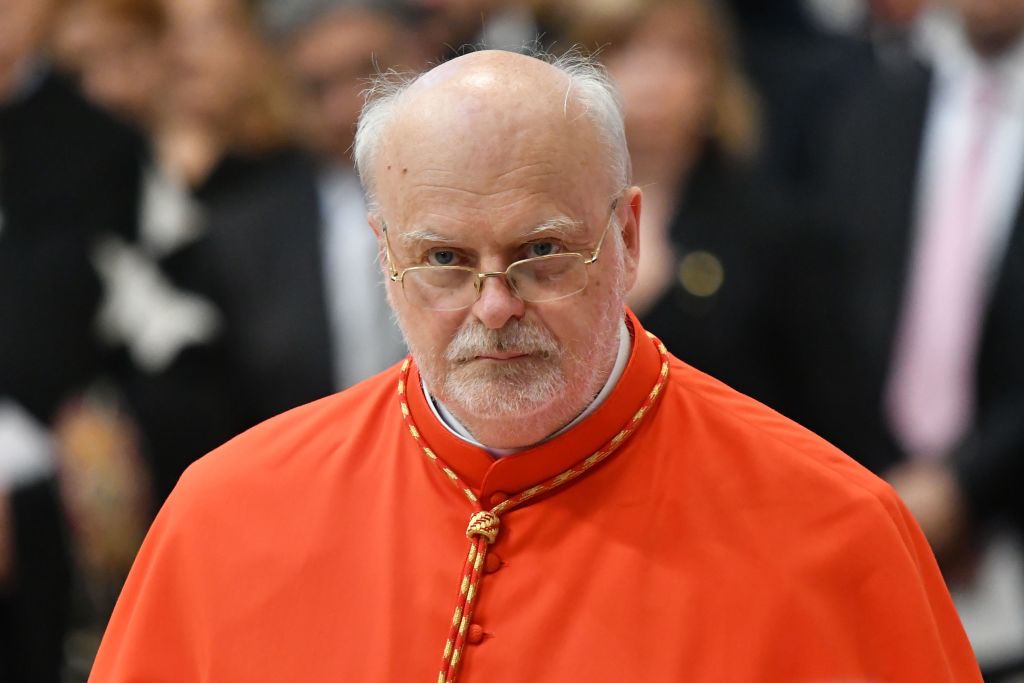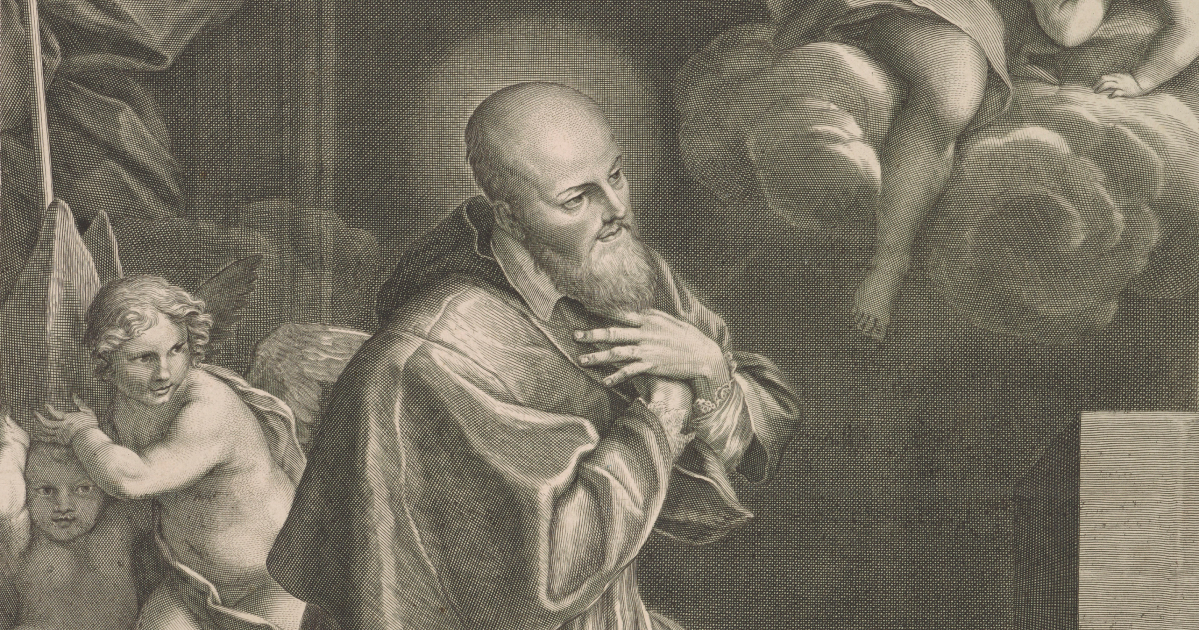Tensions in the Catholic Church in Scandinavia are raised after the Priestly Fraternity of St. Pius X (SSPX) sharply rebuked a statement about the organisation and its priests that came from Cardinal Anders Arborelius.
The cardinal asserted in a 15 August statement – which can be read in full at the end of the article – that, among various points of contention, the SSPX does not live and work in communion with the Holy See and that therefore the sacraments celebrated by its priests are “valid but illicit”.
The SSPX has issued a pointed rebuttal to Cardinal Anders Arborelius of Stockholm following his regarding the Society's canonical status and pastoral activities. In an open letter sent in response, dated 22 August, the SSPX asserts that the sacraments administered by its priests are both valid and licit, citing specific papal documents to support their position.
The Society's letter addresses several key points raised by Cardinal Arborelius. Notably, it references Pope Francis's 1 September 2015 decree granting faculties to SSPX priests for the valid and licit hearing of confessions, initially for the duration of the Year of Mercy and later extended indefinitely in the Apostolic Letter Misericordiaet Misera on 20 November 2016.
The SSPX contends that this extension indicates the Holy See's recognition of the pastoral benefit provided by their priests. Furthermore, the letter cites a 27 March 2017 communication from the Pontifical Commission Ecclesia Dei, which authorised local ordinaries to grant faculties for the celebration of marriages by FSSPX priests, explicitly stating that this decision was made "to reassure the conscience of the faithful".
In response to Cardinal Arborelius's assertion that the SSPX does not live and work in communion with the Holy See, the Society strongly disagrees, describing this statement as "manifestly false" and "a grave calumny”. The SSPX emphasises its adherence to the Catholic faith, submission to the authority of the Pope and the practice of praying for the Pope during Mass, which they argue demonstrates their communion with the Church.
The letter also challenges the Cardinal's claim that the SSPX's canonical status is unclear, pointing out the contradiction in labelling them as both in schism and having an unclear canonical status. The Society references statements from both Pope Benedict XVI and Pope Francis, indicating that the issues between the Holy See and the SSPX are doctrinal rather than disciplinary, and that the Society is considered part of the Church.
Regarding the registration of sacraments, the SSPX expresses concern over the cardinal's directive to exclude their sacraments from diocesan records, particularly for baptisms, confirmations and marriages. They argue that such actions contravene Canon Law, which mandates the recording of these sacraments to prevent confusion and potential sacrilegious repetition.
The statement was signed by Father Karl Stehlin, District Superior for Poland and Scandinavia for the SSPX, and by Father Håkan Lindström, SSPX Priest responsible for the Scandinavian Apostolate.
In his 15 August statement, Cardinal Arborelius called for unity within the Diocese of Stockholm and clarified the canonical status of the SSPX, cautioning Catholics against actions that might undermine ecclesial communion.
The cardinal’s comments come at a time of renewed unease over the role of the Society of St Pius X , after Bishop Bernard Fellay was reported to have administered the sacrament of Confirmation in Sweden without the knowledge or permission of Cardinal Arborelius, the local ordinary. Critics argue the SSPX are too extreme and rigid in their opposition to the reforms of the Second Vatican Council, warning that their decision to conduct sacramental ministry independently risks undermining ecclesial unity.
The controversy is rooted in the Society’s history. The SSPX was canonically suppressed by the Holy See in 1975, although the SSPX disputes such suppression as illegal, and in 1988 its founder, Archbishop Marcel Lefebvre, consecrated four bishops, including Bishop Fellay, without papal mandate, a move Rome declared a schismatic act. Critics maintain that these actions show a refusal to submit to legitimate ecclesiastical authority, fuelling concerns that the Society continues to function outside the structures of the Church.
The SSPX is a traditionalist Catholic society of priests founded in 1970 by Archbishop Marcel Lefebvre in Écône, Switzerland. It was established in response to the reforms of the Second Vatican Council, particularly the changes to the liturgy and certain doctrinal interpretations, which the SSPX and his followers viewed as a departure from the Church’s traditional teachings.
The SSPX celebrates the traditional Latin Mass according to the 1962 Missal and is committed to preserving pre-conciliar forms of sacraments, catechesis and religious life. While the SSPX maintains that their activities are in line with Church teachings and serve the spiritual needs of the faithful, Church authorities continue to scrutinise their canonical status and the implications of their pastoral work.
The Vatican’s official Jubilee 2025 calendar recently listed a pilgrimage by the Priestly Fraternity of Saint Pius X (SSPX), with the occasion seemingly marking a rare moment of visible accord following long-running tensions between SSPX and the Vatican.
The pilgrimage proved a success, with reports that the SSPX Jubilee pilgrimage saw around 8,000 participants parading through the Vatican on 21 August.
However, shortly after the pilgrimage, the Vatican appeared to have quietly removed all mention of the Society of St Pius X from the official Jubilee 2025 website calendar, despite earlier listings. While all other pilgrimages past, present and future remain listed, the SSPX pilgrimage was conspicuously absent.
RELATED: Vatican drops SSPX pilgrimage from official Jubilee 2025 calendar
The 15 August statement by Cardinal Arborelius, comprising an introduction followed a by list of specific points of "clarification", reads as follows (having been translated from the original Swedish with DeepL.com):
Statement by Cardinal Arborelius on the importance of unity and clarification regarding the FSSPX in our diocese
Dear brothers and sisters in the Catholic Diocese of Stockholm!
As Catholic Christians, we believe that the Pope, as the successor of Peter, administers the office of unity. Our Holy Father Leo XIV emphasised at the beginning of his pontificate that he wanted to protect and strengthen the internal unity of our Catholic Church. It is only on the basis of internal unity that we can contribute to strengthening unity with other Christians. 2025 is also an ecumenical year, when we, together with all the baptised, convert and unite ourselves with Jesus, who prays that we may all be one.
During this holy jubilee year, we also commemorate the Council of Nicaea 1,700 years ago. Since then, we Christians have had the same creed. In it, we profess our faith in ‘one, holy, catholic and apostolic Church’.
In order to safeguard the internal unity of our diocese, I wish to make this statement and clarification. The Holy Eucharist is the sacrament of unity, where we are united with Jesus and with one another. That is why it is so important that the celebration of the Holy Eucharist strengthens us in the unity of faith, hope and love and does not give rise to division.
Today we pray especially that the Virgin Mary, assumed into the full glory of heaven, will pray for us and help us to remain in the unity that Jesus entrusted to his apostles and their successors to preserve and strengthen.
Stockholm, 15 August 2025, Assumption of the Virgin Mary into Heaven
Clarification following the visit of the Fraternitas Sacerdotalis Sancti Pii X (FSSPX) and its former superior general to the Catholic Diocese of Stockholm:
1. The Bishop of Stockholm alone exercises oversight of liturgical life in the Catholic Diocese of Stockholm and is ultimately responsible for the unity of the diocese. No other bishop may perform episcopal functions within our diocese without the permission of the diocese's bishop, Cardinal Arborelius. (CIC 390. De pastorali ministerio episcoporum, 22 February 1973, n. 32-38).
2. Bishop Bernhard Fellay is the former Superior General of the FSSPX association, which does not live and work in communion with the Holy See and whose canonical status is unclear. Without our bishop's knowledge, he has performed episcopal functions in our diocese. To invite a church leader to the diocese on private initiative is contrary to canon law and leads to division and discord.
3. Catholics who receive sacraments administered by the FSSPX must know that the Church discourages the faithful from participating in Masses celebrated by this fraternity because the FSSPX lacks canonical (ecclesiastical) recognition and is not in full communion with the Holy See and Pope Leo XIV. Participation in and reception of the sacraments in this context expresses a lack of unity with the diocese's bishop Anders Arborelius OCD and Pope Leo XIV.
4. FSSPX priests are not authorised to celebrate Mass in our churches, chapels or monasteries.
5. Sacraments received through the FSSPX cannot be recorded in the diocese's and parishes' church registers, which directly affects the ability of believers to obtain baptism and confirmation certificates.
6. Sacraments celebrated by FSSPX priests should be avoided as they are ‘valida sed illicita’ - valid but illicit. Since the sacraments of the Church are the most sacred things she administers, they demand the deepest reverence. A priest should never consciously celebrate unauthorised sacraments, and this also applies to the participation of the faithful. (CIC can. 838; 844 §1)
Photo: Bishop of Stockholm and designated cardinal Anders Arborelius from Sweden attends a consistory for the creation of five new cardinals on June 28, 2017 at St Peter's basilica in Vatican. (Photo by ALBERTO PIZZOLI/AFP via Getty Images.)

















